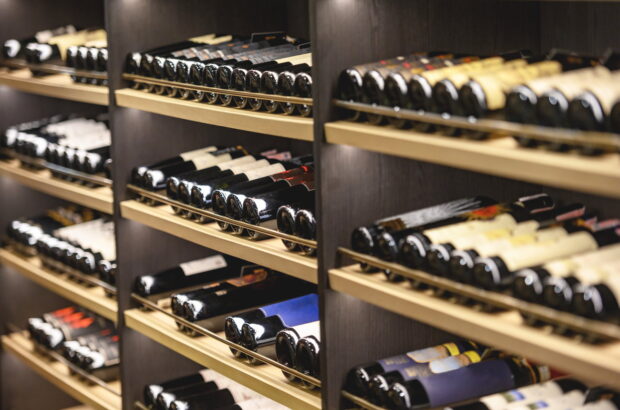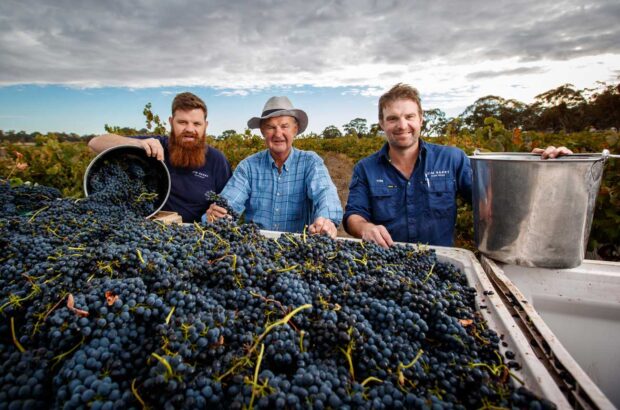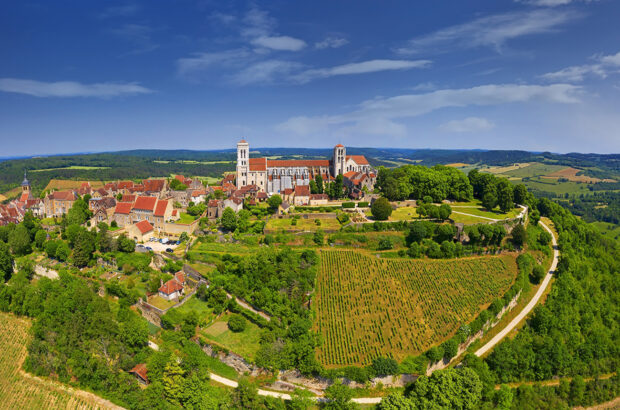No wine is more sipped, but less tasted, than Champagne. For most of its drinkers, it’s a social marker. Clutching a flute of Champagne is a secular rite – to denote achievement, happiness, success, or to shine a light on any of the significant waymarks in life. What it actually tastes like is secondary, perhaps irrelevant. Indeed, given its high acidity levels and the ever-decreasing levels of dosage decreed by today’s zeitgeist, I suspect that many of those happy, starry-eyed celebrants must secretly suffer it rather than relish it.
Decanter readers – a breed apart, as usual – are indeed interested in tasting Champagne rather than merely enacting a ritual, and I wish you much pleasure with that as we mark the year’s hinge, the darkest day, and the return of the light over the coming month. All I’d say is this. Notice what a very strange sort of wine it is. As you hold it in your mouth, try to see the wine inside the bubbles, shocking though that experience may be.
{"content":"PHA+VGhlIGdyZWF0ZXN0IHdpbmVzIG9mdGVuIGhhdmUgYSBraW5kIG9mIGxvdmVseSB1bmxvdmVsaW5lc3MgYXQgdGhlaXIgaGVhcnQg4oCTIHRoZSBmaWVyY2UgdGFubmlucyBvZiB0aGUgTGFuZ2hlLCB0aGUgYXVzdGVyaXR5IG9mIGNsYXNzaWMgTcOpZG9jYWluIGJlYXV0eSwgYSBtb2NraW5nIHN0b255LXNvdXIgc2xlbmRlcm5lc3MgaW4gcmVkIEJ1cmd1bmR5LiBTbyB3aXRoIENoYW1wYWduZSwgYW5kIENoYW1wYWduZeKAmXMgc2VhcmluZyBhY2lkaXR5LiBJdCBpcyB1bnJlYXNvbmFibGUsIGFuZCBpbiBhbmQgb2YgaXRzZWxmLCBhbG1vc3QgaW1wb3NzaWJsZSB0byBsaWtlLiBWaXNpdG9ycyB3aG8gZ2V0IGEgY2hhbmNlIHRvIHRhc3RlIHRoZSB2aW5zIGNsYWlycyAoc3RpbGwgYmFzZSB3aW5lcykgYmVmb3JlIGJsZW5kaW5nIGZpbmQgdGhlbSBwYWluZnVsLCBjaGFsbGVuZ2luZywgaW5zY3J1dGFibGUgYW5kIHRvb3RoLWphbmdsaW5nLiBZb3UgY2FuIGV4cGVyaWVuY2Ugc29tZXRoaW5nIG9mIHRoaXMgZm9yIHlvdXJzZWxmIGJ5IHNhbXBsaW5nIGEgc3RpbGwgQ290ZWF1eCBDaGFtcGVub2lzIHdoaXRlIHdpbmUuIE9ubHkgdGhlIHJpcGVzdCB3aW5lcyBmcm9tIHRoZSBtb3N0IGZhdm91cmVkIHZpbGxhZ2VzIHdpbGwgYmUgdXNlZDsgZXZlbiBzbywgaXTigJlzIGhhcmQgdG8gY2FsbCB0aGVtIOKAmGJhbGFuY2Vk4oCZLCBvciB0byBzZWUgaG93IHRoZXkgY291bGQgcmVhbGx5IGp1c3RpZnkgdGhlaXIgwqMzMCsgcHJpY2UgcG9pbnRzLiAoWWVzLCBJIGtub3cgdGhleSBhcmUgaGFyZCB0byBmaW5kOiBRRUQuKVRoaXMgbWlnaHQgbGVhZCB1cyB0byBjb25jbHVkZSB0aGF0IHRoZSBiZWF1dHkgaW4gQ2hhbXBhZ25lIGlzIGEgbWF0dGVyIG9mIGFjcXVpcmVkIGV4dGVybmFsaXRpZXM6IHRoZSBzaW5ldyBvZiBtYWxvbGFjdGljIGZlcm1lbnRhdGlvbiwgdGhlIG51dHR5IHJlc29uYW5jZSB3aGljaCBjb21lcyB3aXRoIGEgbGl0dGxlIGNvbnRyb2xsZWQgb3hpZGF0aW9uICh2aWEgY2FzayBmZXJtZW50YXRpb24pLCB0aGUgdG9uZ3VlLXRlYXNpbmcgdGV4dHVyZcKgb2YgdGlueSBidWJibGVzLCB0aGUgYnJlYWR5IHNjZW50cyBhbmQgY3JlYW15IHBhbGF0ZSBmdWxsbmVzcyBvZiBhdXRvbHlzaXMsIHRoZSBjaGFtZmVyaW5nIGJyb3VnaHQgYnkgdGhlIGFkZGl0aW9uIG9mIGZpbmVseSBqdWRnZWQgZG9zYWdlLCB0aGUgZ2F0aGVyaW5nIGhhcm1vbnkgd2hpY2ggaXMgdGhlIGxlZ2FjeSBvZiBjZWxsYXIgeWVhcnMuIFRob3NlIGVsZW1lbnRzIG11c3QgY29uc3RpdHV0ZSB0aGUgc2VjcmV0LCBubz88L3A+CjxwPk5vdCBhdCBhbGw6IHRoZXNlIGV4dGVybmFsaXRpZXMgY2FuIGJlIG1pbWlja2VkIGJ5IGFueSBza2lsbGVkIHNwYXJrbGluZy13aW5lIGNyYWZ0c3dvbWFuIG9yIGNyYWZ0c21hbiBhbnl3aGVyZS4gQW5kIHRoZXkgZG87IGFuZCB0aGV5IGFyZS4gT3RoZXIgcmVnaW9ucyBtYWtpbmcgQ2hhbXBhZ25lLXN0eWxlIHNwYXJrbGluZyB3aW5lcyBub25ldGhlbGVzcyBzdHJ1Z2dsZSB0byBtYXRjaCBDaGFtcGFnbmUgKHRob3VnaCBib3RoIHRoZSBVSyBhbmQgVGFzbWFuaWEgZ2xpZGUgaW1wcmVzc2l2ZWx5IGNsb3NlKS4gRWl0aGVyIENoYW1wYWduZSBjcmFmdHNwZW9wbGUgYXJlIHNpbXBseSBtb3JlIHNraWxsZWQgdGhhbiBldmVyeW9uZSBlbHNlIOKAkyB3aGljaCBzZWVtcyBpbXByb2JhYmxlIOKAkyBvciB3ZSBhcmUgYmFjayB0byB0aGUgcmF3IG1hdGVyaWFscyB0aGVtc2VsdmVzOiBDaGFtcGFnbmUgZ3JhcGVzLCBtdXN0IGFuZCBzdGlsbCB3aW5lLjwvcD4KPHA+PGRpdiBjbGFzcz0iYWQtY29udGFpbmVyIGFkLWNvbnRhaW5lci0tbW9iaWxlIj48ZGl2IGlkPSJwb3N0LWlubGluZS0yIiBjbGFzcz0iaXBjLWFkdmVydCI+PC9kaXY+PC9kaXY+PC9wPgo8cD5UaGUgbW9yZSBJIHRhc3RlIENoYW1wYWduZSwgdGhlIG1vcmUgY29udmluY2VkIEkgYW0gdGhhdCB0aGlzIGlzIHdoZXJlIGl0cyBxdWFsaXR5IGxpZXMuIEFuIHVuZGVyc3RhbmRpbmcgb2YgdGhpcyBzdHJhbmdlIHdpbmUgY29uc2lzdHMgaW4gcGFyaW5nIGF3YXkgdGhlIGV4dGVybmFsaXRpZXMgdG8gc2VlLCB0byBzbWVsbCwgdG8gdGFzdGUgYW5kIHRvIHdlaWdoIHVwIHRoZSBpbnRyaW5zaWMgbmF0dXJlIG9mIHRoZSBsdW5naW5nIGZydWl0IGJlbmVhdGguIENoYWxrIGlzIG5vdCB0aGUgcHJpbWFyeSBjYXVzZTsgdGhlIG1hZ2ljIGxpZXMgaW4gdGhlIGdyZXksIGZyZXRmdWwsIGhlc2l0YW50IENoYW1wYWduZSBzZWFzb24sIGFuZCB0aGUgcGhlbm9saWMgbWF0dXJpdHkgc28gcGFpbnN0YWtpbmdseSBhY3F1aXJlZCBvdmVyIHRoZSBsZW5ndGggb2YgdGhhdCBzZWFzb24gd2lubmluZyBvdXQgb3ZlciB0aGUgdHdvLXNpZGVkIGhhemFyZCBvZiBkZWZpY2l0IHN1Z2FycyBhbmQgdW5yZWFzb25hYmxlIGFjaWRpdHkuPC9wPgo8cD5UaGF0IGlzIHdoZXJlIHRoZSByZXNvbmFuY2UsIHRoZSBwZXJmdW1lLCB0aGUgbnVhbmNlIGFuZCB0aGUgbGlmdCBvZiB0cnVseSBncmVhdCBDaGFtcGFnbmUgbGllcywgYWx0aG91Z2ggaXQgaXMgbmVjZXNzYXJpbHkgYnVyaWVkIGluIHJhdyB5b3VuZyBhY2lkaXR5IGF0IHRoZSB2aW4gY2xhaXIgc3RhZ2UuIEl04oCZcyB3aGVuIHRoZSBiYWxhbmNpbmcgZXh0ZXJuYWxpdGllcyBhcmUgaW4gcGxhY2UgdGhhdCB3ZSBkcmlua2VycyBhcmUgZmluYWxseSBhYmxlIHRvIHVubG9jayB0aGUgcmVzb25hbmNlIG9mIENoYW1wYWduZeKAmXMgc2xvdy1zZWFzb24gZnJ1aXQgYW5kIChub3cgY2hhbGsgY2FuIHBsYXkgYSByb2xlKSBpdHMgdmVyeSBmaW5lc3QgdmluZXlhcmRzLjwvcD4KPHA+VGhhdOKAmXMgd2hhdCBJ4oCZZCB1cmdlIHlvdSB0byBzZWVrIGluIGJvdHRsZXMgb2YgQ2hhbXBhZ25lIHlvdSB0YXN0ZSB0aGlzIENocmlzdG1hcy4gVGhlcmUgc2hvdWxkIGJlIG5vdGhpbmcgc3dlZXQsIG5vdGhpbmcgYml0dGVyLCBub3RoaW5nIHNob3J0LCBub3RoaW5nIGhhcmQsIG5vdGhpbmcgdG9vIGNyZWFteSwgbm90aGluZyB0b28gZml6enksIG5vdGhpbmcgZXZpZGVudC48L3A+CjxkaXYgY2xhc3M9ImFkLWNvbnRhaW5lciBhZC1jb250YWluZXItLW1vYmlsZSI+PGRpdiBpZD0icG9zdC1pbmxpbmUtMyIgY2xhc3M9ImlwYy1hZHZlcnQiPjwvZGl2PjwvZGl2Pgo8cD5JdOKAmXMgYnkgbG9va2luZyBpbnRvIHRoZSBjb2xkLCBzaW5naW5nIGZpcmUgb2YgaXRzIGFjaWQgcHJvZmlsZSB0aGF0IHlvdeKAmWxsIGZpbmQgdGhlIGFsbHVzaW9ucyB3ZSBsb3ZlIG1vc3QgaW4gdGhpcyB3aW5lOiBvcmNoYXJkcywgZmllbGRzLCBtaXN0cyBhbmQgdGhlaXIgdGF1dCB5ZXQgbGFtYmVudCBmcnVpdHMuPC9wPgo8cD4K"}
What I’ve been drinking this month
Some old friends and I chewed over (the verb is accurate) my last and much-travelled bottle of Baumard’s Clos du Papillon Savennières 2002 recently. It was reticent; it, too, had a sort of lovely unloveliness: that scent of dry straw, dry flowers and a sharp, almost rancid buttery quality, then sour green plums in the mouth, stony austerity and a little oxidative bite. We liked it all the more for the fact that it wasn’t trying to be liked.
Vineyards at Castell, in Franconia.
Credit: Andrew Jefford
Andrew Jefford visits Franconia...
Rebula grapes waiting to be harvested.
Credit: Andrew Jefford
Andrew Jefford tastes Rebula...
Barbaresco Rabaja vineyard, one of the most prestigious in the region.
Credit: Andrew Jefford
Andrew Jefford on the hunt for value in Piedmont...















